
Thirteen investigators and teams were awarded grants in support of cancer research projects in the spring 2024 cycle of the UCSF Resource Allocation Program (RAP). Funded by various agencies across UCSF, the awards span a range of topics from drug discovery to personalized cancer screening to health equity.
RAP is a campus-wide program that bi-annually facilitates intramural research funding opportunities and seeds high-quality, high-impact, timely research. The program offers many benefits for investigators and campus agencies, including a single application, a streamlined review process, and access to funding that has a typical funding rate around 40 percent.
Read more about the recent awardees and their cancer research projects below.

Qihui Lyu, PhD
Assistant Professor of Radiation Oncology, UCSF
Project: Treatment verification and dose tracking for prostate cancer patients under High Dose Rate (HDR) brachytherapy
Award Mechanism: Pilot for Early Career Investigators
Can you describe the focus of your project in a few sentences?
High Dose Rate (HDR) brachytherapy is a mainstay modality to deliver radiation doses directly within tumors, thereby reducing exposure to normal tissues. However, its effectiveness is often compromised by inaccuracies in the positioning of radioactive isotopes stemming from human and machine errors, delivery uncertainties, and anatomical changes. We propose a revolutionary method to close the loop for brachytherapy, which will translate to significantly improved accuracy, safety, and reliability of this vital treatment modality.
What motivated you to pursue this particular project?
I was motivated to pursue this research due to the critical need for improved treatment verification in HDR brachytherapy. Accurate dose delivery is crucial for successful HDR brachytherapy treatments, yet current clinical practices lack real-time monitoring and dose tracking capabilities. The proposed method will enable us to monitor HDR treatment and patient anatomical changes without imposing additional procedures or burdens on the patient.
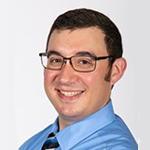
Joseph Rohr, MD, PhD
Assistant Clinical Professor of Laboratory Medicine, UCSF
Project: Unbiased Proteomics for Target Discovery in Archival Primary Human Myeloproliferative Malignancies
Award Mechanism: Pilot for Early Career Investigators
Can you describe the focus of your project in a few sentences?
Bone marrow biopsies are critical for diagnosis and monitoring of many blood cancers. In order for pathologists like me to best render a diagnosis, the biopsies need to be preserved and embedded in wax so that we can do our histologic and other tests. This preservation, however, often reduces the ability to use the sample for other molecular tests. I am working to understand if we can use these preserved samples for analyzing proteins that would otherwise not be able to be tested, which may allow us to use these preserved samples for clinical and research questions in the future.
What motivated you to pursue this particular project?
For myeloproliferative disorders, we obtain biopsies to monitor disease status frequently. We don’t fully understand what causes these diseases to change over time, and proteomics has not been really tried because we have not been able to use archived bone marrow samples for proteomics in the past. I hope to show that, with the right technology, we can use the samples to ask disease-specific research questions using proteomics, which may help us better understand why some people’s diseases progress and some don’t, or what we can do to help prevent progression.
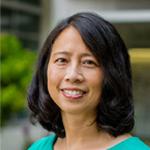
Grace Lin, MD, MAS
Professor of Clinical Medicine, UCSF
Project: Towards Personalized Cancer Screening Recommendations in Older Adults
Award Mechanism: Pilot for Established Investigators
Can you describe the focus of your project in a few sentences?
For adults over the age of 75, individualized decision-making for breast cancer and colorectal cancer is recommended, weighing the benefits and risks of screening and considering quality and quantity of life. This requires the doctor and patient to engage in shared decision-making conversations, usually in a primary care setting. This can be especially complicated if patients speak a different language from the doctor. Our project will look at how cancer screening in older adults currently takes place. Through interviews with doctors and focus groups with older adults, we plan to examine the best ways to encourage shared decision-making conversations about cancer screening in diverse populations including people who speak Spanish and Chinese.
What motivated you to pursue this particular research?
Cancer screening is an important part of preventative care, and there is a lot of enthusiasm for cancer screening in the US. In the past, we have stopped screening at a certain age, when the harms of screening outweigh the benefits. However, some older adults are very healthy and active into their 70s and 80s and even beyond, so it no longer makes sense to have a blanket recommendation of when to stop screening for cancer; it should be based both on a person’s health and their individual preferences. But we don’t know the best way to make this happen routinely in primary care, and there is particularly little information on how to help people from racial and ethnic minority backgrounds. We hope this study provides information that helps spur more shared decision-making conversations about cancer screening between doctors and their older adult patients.
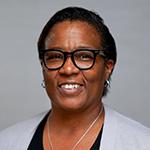
Kim Rhoads, MD, MPH
Director of Office of Community Engagement, UCSF Helen Diller Family Comprehensive Cancer Center
Project: Abundant Life HEALS: Abundant Life Health Equity Action Leaders (HEALERS) in Breast Cancer
Award Mechanism: Pilot for Anti-Racism Research
Can you describe the focus of your project in a few sentences?
The Abundant Life Health Ministries Network is a coalition of faith-based organizations affiliated with our Community Advisory Board at HDFCCC and representing congregations from over half of our 25-county catchment area. They have been organizing and maintaining health ministries since 2005. Last year, we used the Health Equity Advocates and Leaders (HEAL'ers) model to train Black women about breast cancer risk and the drivers of breast cancer disparities. The women used the training sessions to develop a toolkit for credible messengers to inform their communities about ways to improve breast cancer outcomes in historically marginalized communities. The next iteration of HEAL'ers will leverage this toolkit to train more credible messengers to increase awareness, promote screening, early detection, and participation in cancer clinical trials across our catchment area.
What motivated you to pursue this particular research?
Consistent with the mission of our Office of Community Engagement to eliminate the inequities that drive cancer disparities, our ultimate goal with the HEAL'ers is to build community capacity to achieve health equity.
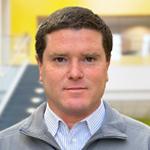
Jean-Philippe Coppé, PhD
Associate Professor of Radiation Oncology, UCSF
Project: Kinome-guided precision medicine approach to design novel combination therapies for pediatric diffuse midline glioma
Award Mechanism: Pilot for Established Investigators
Can you describe the focus of your project in a few sentences?
Diffuse midline gliomas (DMGs) account for 10% of all brain tumors diagnosed in children. Due to limited treatment options, the prognosis of pediatric DMG is underwhelming, with an average life expectancy of less than a year. Although a new class of drugs called ONCs recently emerged as encouraging anti-cancer agents with minimal side effects, most patients eventually develop resistance to ONC-therapy, and tumors relapse. The goal of our UCSF RAP grant is to define and test drug interventions that best synergize with ONC drugs, to restore treatment response and prevent recurrence. We will test these new drug-combination strategies in patient-representative mouse models.
What motivated you to pursue this particular project?
Contributing to pediatric neuro-oncology alongside the outstanding clinical and research teams at UCSF and having the opportunity to participate in the discovery of effective therapeutic strategies to potentially improve the lives of kids and their families, are the reasons that motivate our research program.

Rita Mukhtar, MD
Associate Professor of Clinical Surgery, UCSF
Project: B-BRITE Study: Bariatric Breast Results in Testing Experience
Award Mechanism: Pilot for Established Investigators
Can you describe the focus of your project in a few sentences?
Our study is trying to understand how weight-loss surgery reduces the risk of developing breast cancer and could give us insights into optimizing breast cancer screening tools for people with various body compositions. People having bariatric surgery who enroll in B-BRITE undergo breast biopsies as well as mammogram and breast MRI before and several months after having bariatric surgery. We will learn how changes in tissue inflammatory markers and gene expression signatures correlate with quantitative changes on imaging.
What motivated you to pursue this particular research?
Obesity and its associated metabolic dysfunction are important risk factors for developing breast cancer but are incompletely understood. My interest in breast cancer risk reduction and the potential role of adipocytes in breast cancer led to the initiation of the B-BRITE study. We know that altering body composition through bariatric surgery reduces the chance of developing breast cancer and can lead to altered breast density, but not always in the expected direction. With the recent increase in the use of weight loss medications like GLP-1 agonists, we are now expanding our study to include patients who undergo this therapy to see if changes induced in the breast tissue differ from those induced by surgical weight loss. B-BRITE is a great collaboration between surgeons, endocrinologists, radiologists, and basic scientists, and depends on the amazing patients who are willing to undergo breast biopsies and imaging tests!
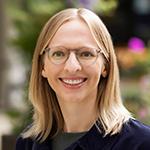
Elizabeth "Betsy" Young, MD
Assistant Professor of Pediatric Oncology, UCSF
Project: Defining the role of cGAS-STING in the osteosarcoma bone microenvironment
Award Mechanism: Pilot for Early Career Investigators
Can you describe the focus of your project in a few sentences?
In our studies of osteosarcoma, we have identified a highly active anti-tumor benefit to STING agonism, which promotes innate immune activation, in patient data and syngeneic animal models of osteosarcoma. Importantly, we have defined a critical role for the non-tumor immune compartment in mediating this response. Given these findings, in this work we propose to expand our studies of the translational potential of STING agonism to osteosarcoma disease models that can best recapitulate the osteosarcoma bone microenvironment, including intratibial implantation models and genetically engineered mouse models, with the goal of understanding the critical immune determinants of the STING activation response in this disease.
What motivated you to pursue this particular research?
Osteosarcoma is a highly aggressive pediatric bone cancer that has not seen advances in multiple decades, and for which immunotherapy has not yet come to benefit patients on a large scale. This stark reality compels my overarching work and specifically this project to better understand the role of STING activation as a translational immunotherapeutic approach for patients with osteosarcoma.
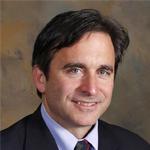
James Rubenstein, MD, PhD
Professor of Medicine, UCSF
Project: Determination of the Efficacy of TLR 7/8 Agonists in Preclinical Models of Brain Tumors
Award Mechanism: Pilot for Established Investigators
Can you describe the focus of your project in a few sentences?
Briefly, our goal is to test the hypothesis that pharmacologic stimulation of the toll-like receptor 7/8 pathway will attenuate the progression of some types of brain tumors. The studies proposed may lead to an early phase trial for relapsed disease, a very high unmet need. The work represents a logical extension of our studies on myeloid subtypes within the tumor microenvironment in CNS lymphoma.
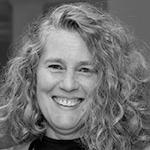
Denise Muñoz, PhD
Associate Professional Researcher, UCSF
Project: Novel role of ThPOK/ZBTB7B, a CD4+ cell lineage commitment factor, as a guardian of epithelial states in mammary carcinoma cells
Award Mechanism: Pilot for Established Investigators
Can you describe the focus of your project in a few sentences?
We've identified the transcription factor ThPOK, which plays a crucial role in lineage commitment, as a master regulator in breast cancer. Our research demonstrates that ThPOK is essential for maintaining the epithelial state of breast cancer cells and prevents their migration. This factor represses the expression of numerous genes linked to cancer hallmarks. Therefore, the primary objective of our project is to investigate the reprogramming that occurs when ThPOK is lost, and cells become more aggressive. We aim to elucidate the mechanisms and interacting partners involved in how ThPOK regulates the expression of these cancer-related genes.
What motivated you to pursue this particular project?
What motivated me to pursue this research project was a combination of the persistent challenge of metastatic breast cancer and the intriguing role of epigenetics in cancer progression. Despite advances in early detection and targeted therapies, metastatic breast cancer remains a formidable challenge with limited treatment options. I was driven by the need to understand how cancer cells adapt at the epigenetic level to become more aggressive and resistant to therapies. By delving into the super-enhancer profiles of both normal and cancerous mammary cells, I aimed to uncover novel insights into the regulatory mechanisms that underlie these changes. This research holds the potential to identify new therapeutic targets and strategies that could ultimately improve outcomes for patients facing this devastating disease.

Rosemary Akhurst, PhD
Professor, UCSF Helen Diller Family Comprehensive Cancer Center
Project: Mechanistic and therapeutic investigation of integrin b8 interaction with genotoxic therapies in HPV negative squamous cell carcinomas
Award Mechanism: Team Science Grant
Can you describe the focus of your project in a few sentences?
This Team Science Award includes basic scientists (Akhurst, Balmain, Pelka), clinical oncologists (Aggarwal, Algazi), and a radiologist (Nakamura) working together with two overarching goals. We will assess the anti-tumor effect of blocking integrin b8 (ITGb8) activity with a clinical grade antibody on outcomes of radiochemotherapy in preclinical models of HPV-negative squamous cell carcinoma (SCC) in mice. Based on the outcomes of this data, the team will collaborate in design of a Phase 1a clinical trial for HPV-negative SCC of the head and neck (SCCHN), submit proposals to the FDA for this investigator-initiated trial, and apply for extramural grant funding for the trial and correlative experiments at UCSF.
What motivated you to pursue this particular research?
Our laboratory has, for many years, studied chemically induced mouse models of SCC, with a particular interest in the central role of the secreted molecule transforming growth factor b (TGFb) in driving tumor progression, metastasis, and drug resistance. We found that pharmacological blockade of TGFb activity synergizes with checkpoint blockade immunotherapy in mouse models of SCC, but clinical efforts to target TGFb signaling have often failed to find a therapeutic window between anti-tumor activity and adverse effects because TGFb is produced by, and acts on, many cell types. As an alternative drug target, integrin avb8 contributes to intratumoral TGFb activity but is expression in a more restricted fashion within normal adult tissues.
In translating our preclinical findings to the clinic, we focus on HPV-negative SCC of the head and neck (SCCHN) which has a high unmet need for novel therapies. Standard of care for oral HNSCC is surgery followed by “radio-chemotherapy” which can be curable but provides only 50% 5-year survival for HPV-negative SCCHN compared to 80% 5-year survival for HPV+ SCCHN. Since HPV viral proteins down-regulate TGFb signaling, this difference in chemotherapy outcomes may, in part, be due to different intratumoral TGFb signaling levels. HPV-negative SCC may therefore benefit most from TGFb signaling blockade therapy.

Bridget Keenan, MD, PhD
Assistant Professor of Medicine, UCSF
Project: Investigating Virus-Specific T Cell and Myeloid Cell Interactions to Personalize Cancer Immunotherapy for Hepatocellular Carcinoma
Award Mechanism: Pilot for Early Career Investigators
Can you describe the focus of your project in a few sentences?
Most cases of hepatocellular carcinoma (HCC) arise in the setting of viral hepatitis, alcoholic liver disease, or metabolic liver diseases, but the mechanisms underlying the response to cancer immunotherapy in these different settings is not well understood. In this proposal, we will profile the immune system of patients with HCC, with a focus on T cells and their relationship to potentially suppressive myeloid cells. I am working with collaborator Dr. Li Zhang and her team of scientists using novel single cell methods to identify viral-specific T cells and determine their impact on immunotherapy responses. We will also seek to understand how myeloid and T cell relationships within the tumor microenvironment differ in viral and non-viral HCC.
What motivated you to pursue this particular research?
Hepatocellular carcinoma is largely treated like it is one disease whereas for other cancer types, we have more personalized therapies based on factors like the mutational profile. We aim to learn what cellular and molecular differences exist within subsets of HCC, according to factors like etiology and severity of liver disease, to identify new targets to tailor treatment and develop more efficacious immunotherapies for advanced HCC in the future.
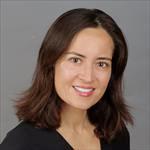
Paola Betancur, PhD
Assistant Professor of Radiation Oncology, UCSF
Project: Profiling the CD47 immuno therapeutic target across tumor immune subtypes: A novel approach for predicting efficacy of cancer therapies
Award Mechanism: Under-represented Faculty in Clinical and Translational Research Awards
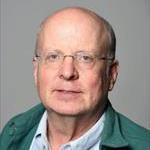
Keith Mostov, MD, PhD
Professor of Anatomy, UCSF
Project: Use of polymeric immunoglobulin receptor for delivery of antibodies to the cytoplasm
Award Mechanism: Pilot Award for Pancreas Cancer
About RAP
The mission of the UCSF Resource Allocation Program (RAP) is to make applying for intramural research funding efficient and accessible for all faculty and non-faculty applicants, and to coordinate and minimize the redundancy of the application and review process among the funding agencies. Learn about the power of a RAP award here.
The Fall 2024 RAP application cycle opens on Thursday, August 29th with applications due on September 30th -- mark your calendars!